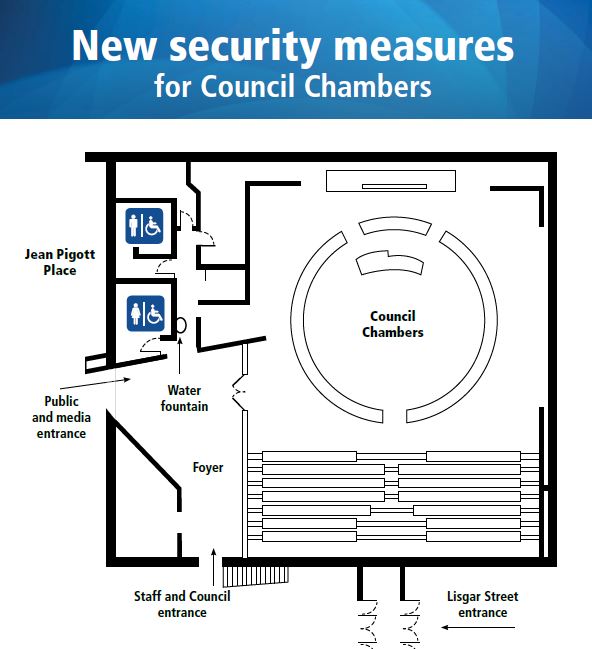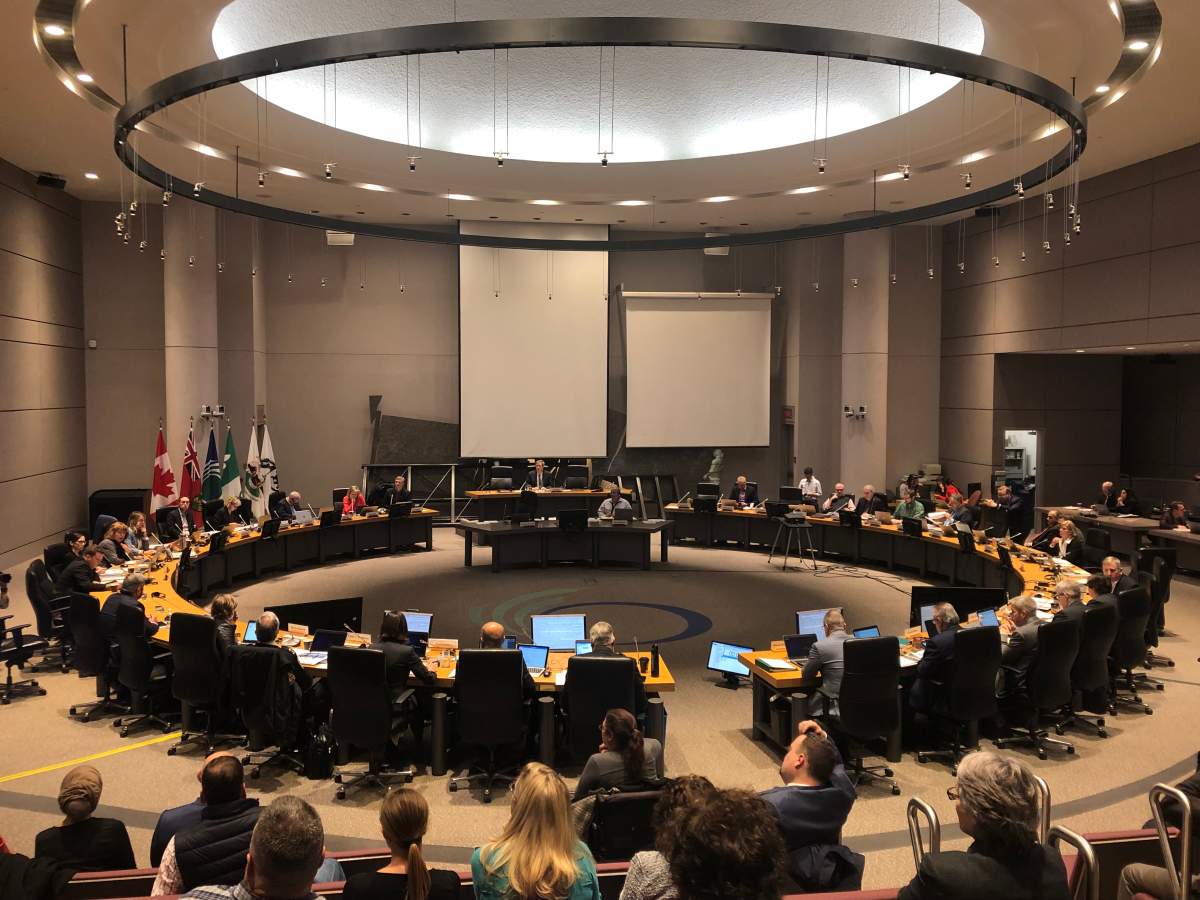Ottawa’s city hall will be beefing up security for its council chambers next year.

According to a news release from the city, Andrew S. Haydon Hall will soon be protected by access gates at both entrances in January 2020.
The city says these new security measures are being put into place to “further expand on long standing practices that already exist for standing committee and council meetings, and reflect the constantly evolving security landscape of a large metropolitan city.”
The city has previously installed other measures, like bollards on Laurier Avenue, CCTV cameras and guard services, to secure council members and city staff at city hall.

Once the gates are installed, the foyer entrance to the hall from Jean Pigott Place will be specifically designated for the public and members of the media. Another lineup will be dedicated for those with accessibility requirements.
City staff and council members will be given photo ID cards to use at a security gate situated underneath the staircase near the Lisgar Street entrance.

According to the city, the gates will be used during city council meetings, standing committee and transit commission meetings and certain special events.

Get daily National news
When passing through the gates, security officers will be inspecting purses, bags and coats, and will be looking out for prohibited weapons.
If a member of the public or the media exits the foyer, they will have to go through the screening process again.
Once the new security measures are in place, the city says the process is meant to take up to one minute, but is asking those visiting council chambers to come earlier to avoid any delays.
They are also advising visitors to avoid bringing unnecessary baggage and to avoid bringing the following items into the chambers:
- Outside food and beverages, which the city says are not permitted in the spectator gallery, although empty bottles are allowed and can be filled once past security.
- Noisemakers, megaphones or airhorns.
- Signs and banners.
- Sharp objects, blades or striking tools, scissors, knives, collapsible batons and box cutters.
- Compressed gas cylinders (not needed for medical purposes), aerosol cans, and non-sealed batteries.
- Explosive or flammable items like fireworks, ammunition, fuels (including cooking fuel), gas and micro-torches and torch lighters.
- Firearms, including toy and replicas.
- Any unchecked bags.
Construction for the gates will start on Dec. 17. City staff will present a report to council next year to suggest further security measures that will mirror techniques used by other large cities in Canada.








Comments
Want to discuss? Please read our Commenting Policy first.